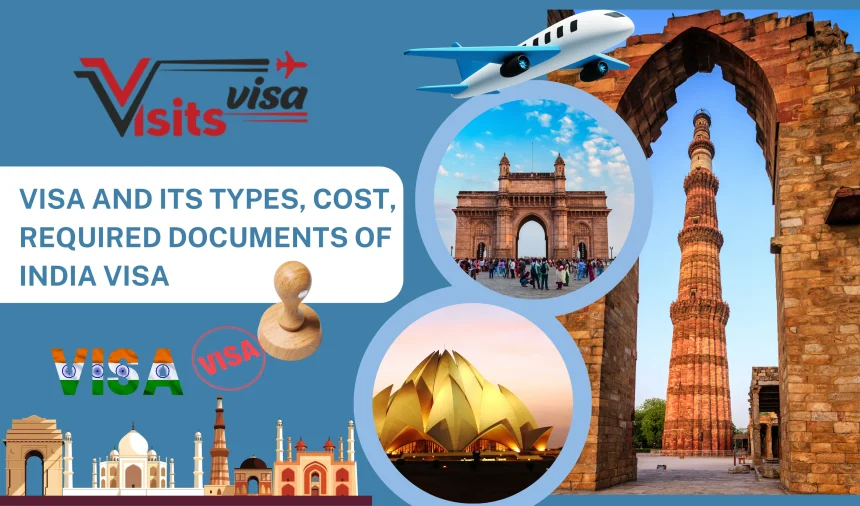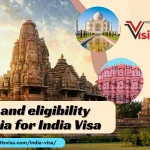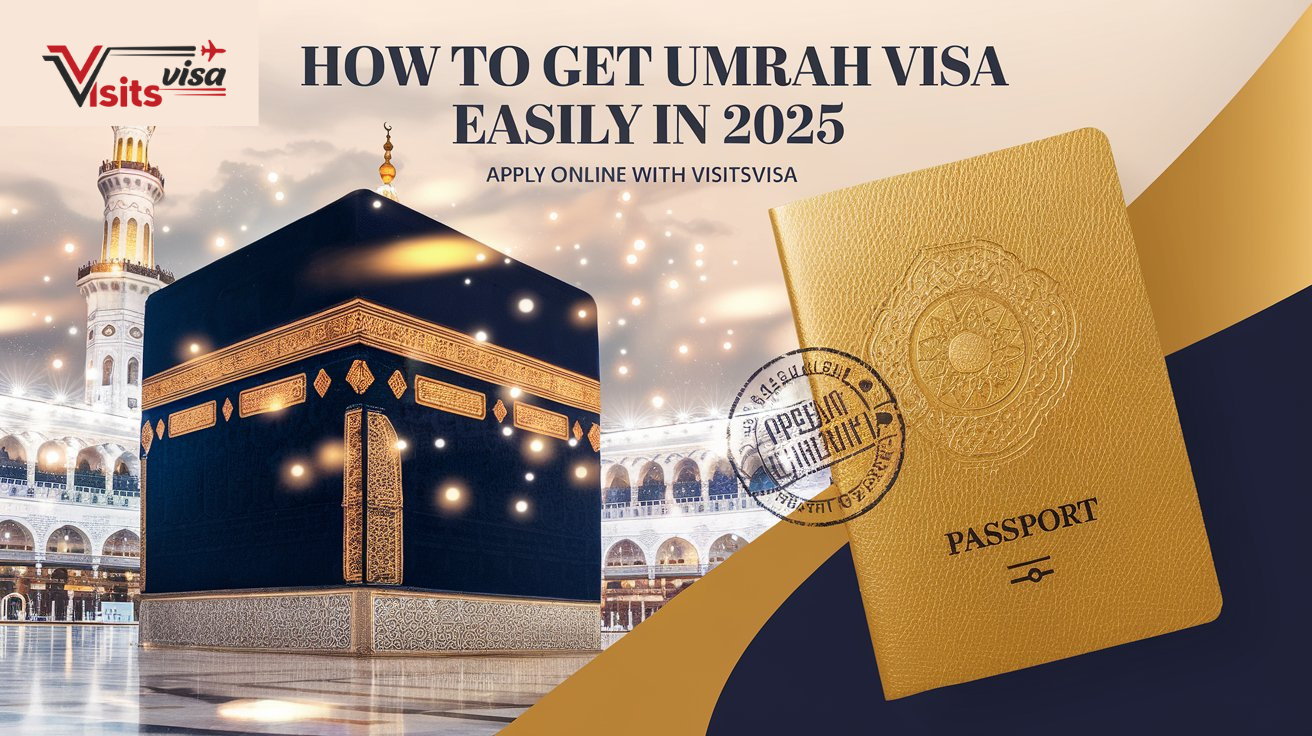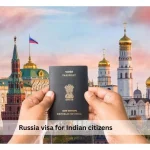Introduction:
In a world where country borders appear to be mere lines on a map, the reality of international travel is often more complex. It is important to understand visas for those travelling to India beyond their country’s borders. Whether you are planning a relaxing vacation, going on a business trip, or looking for study or employment opportunities in India, the India visa process can be an important step. At VisitsVisa, we’re dedicated to demystifying the process and providing clarity on the different types of visas available to travellers from around the world.

Understanding Visas:
A visa is essentially a travel document issued by a country’s government, granting permission for entry into that country for a specific purpose and duration. It serves as an endorsement in a passport, indicating that the holder has met the requirements for entry as determined by the destination country’s immigration authorities.
Types of Visas:
Here are some most popular visa types for India.
Tourist Visa:
- This visa is designed for individuals travelling to another country for leisure or recreational purposes.
- Usually, this fat is valid only for a short period, ranging from a few days to several months.
- There may be restrictions on permitted activities during the stay, such as restrictions on employment or business activities.
Example: India Tourist Visa for travellers exploring India’s rich cultural heritage and diverse landscapes.
Business Visa:
- This visa is for individuals who wish to visit India for business-related activities, such as meetings, conferences, or negotiations.
- Documentation demonstrating the purpose of the trip is often required, and there may be specific requirements regarding financial solvency or sponsorship.
- This visa allows a temporary stay in the destination country for business purposes only.
Example: India Business Visa for entrepreneurs, investors, or professionals looking for opportunities in the emerging market of India.
Student Visa:
- This visa is issued to individuals who have enrolled in educational programmes or institutions abroad.
- Acceptance into an accredited educational institution is required, and proof of financial aid and housing arrangements may be required.
- Studies generally allow long-term.
Example: An Indian student visa is very beneficial for international students pursuing higher education at Indian universities or colleges.
Work Visa:
- This visa is given to people looking for employment opportunities abroad.
- You are often required to provide job offer documents from the sponsoring employer, and this may include verification of qualifications, experience, and labour market conditions.
- Allows legal employment within a specified period and may have provisions for extension or permanent residence.
Example: India Employment Visa for foreign nationals employed by Indian companies or organisations.
Transit Visa:
- This visa is designed for travellers who are passing through a country on their way to their final destination.
- Usually valid for short periods, it may have restrictions on leaving the airport or seaport.
- For stays beyond a certain period or when passengers need to change modes of transportation (for example, from air to land).
Example: an India Transit Visa for India travellers transiting through Indian airports or ports to travel to another country.
eVisa: Electronic Visa
In the age of digital advancement, many countries offer the facility of eVisas, also known as electronic visas. You can apply for these visas online, eliminating the need for traditional paper applications and embassy visits. eVisas streamline the process, providing quicker turnaround times and greater accessibility for travellers around the world. For example, India offers eVisa for tourists, business visitors, and medical travellers. You can apply for your India Visa by visiting VisitsVisa’s online website platform, making it easier to plan your trip.
ETA: Electronic Travel Authorization
Similar to the eVisa, electronic travel authorizations (eTAs) are electronic documents that allow travellers to enter a country for a short-term stay. eTAs are often linked to specific visa categories, such as tourist or business visas, and are obtained online in advance of travel. They facilitate seamless immigration processes upon arrival, giving passengers a seamless experience. With VisitsVisa, applying for an ETA to your desired destination is simple and convenient, so you can focus on enjoying your trip.
Visa on Arrival:
Visa on arrival is an option available in some countries that allows travellers to obtain a visa on arrival at the immigration checkpoints of their destination. This option is generally available for short-term stays and may have specific requirements or limitations depending on the country. While it is convenient for spontaneous travel, it is essential to research and understand the visa requirements and eligibility criteria beforehand. VisitsVisa provides valuable information and assistance to ensure a seamless visa experience on arrival for travellers.
New Rules for India Visas:
Travellers need to stay updated on any changes or updates to visa rules and requirements. India, like many countries, imposes new rules or policies regarding visa issuance, validity, or application procedures. VisitsVisa keeps travellers informed about any recent developments or changes in Indian visa rules, ensuring a seamless and hassle-free Application process.
India Visa Document Requirements:
Applying for a visa to India requires you to submit specific documents, depending on the visa category and the circumstances of the applicant. Documents generally required include
a valid passport,
visa application form,
photographs,
proof of the itinerary,
financial statements,
and any additional documents related to the visa type. VisitsVisa provides detailed information on document requirements for visa applications to India, helping applicants prepare their paperwork correctly.
Who Can Apply for an India Visa from Outer Countries?
India visa apply can be submitted by persons resident outside India, subject to certain eligibility criteria. Eligibility may vary depending on factors such as nationality, purpose of travel, and expected length of stay. VisitsVisa assists applicants in determining their eligibility for an India visa and guides the application process for applicants living abroad.
Cost of India Visa:
The cost of India visa depends on several factors, including the type of visa, length of stay, and nationality of the applicant. India offers different visa categories with different fees, ranging from standard tourist visas to business and employment visas. Additionally, some countries may have reciprocal visa fee arrangements with India, which may affect the overall cost for applicants. To know the cost of your India visa, you can check by visiting the VisitsVisa website.
Travellers are required to check the current visa fees and payment methods accepted by the Indian Consulate or Embassy responsible for processing visa applications. At VisitsVisa, we provide the latest information on visa fees and ensure transparency in our visa application process, helping travellers plan their expenses correctly.
Cost of Living in Different Cities in India:
Here we are going to explain why it is important for travellers and expatriates to understand the cost of living in different cities in India. The cost of accommodation, transportation, food, and other essential items can vary significantly from city to city. Here are some examples:
-
Mumbai:
Known for its bustling streets and vibrant culture, Mumbai offers a variety of accommodation options, from budget hostels to luxury hotels. The cost of living in Mumbai can be relatively high compared to other Indian cities, especially in terms of accommodation and eating out.
-
Delhi:
As the capital of India, Delhi is a mix of cultures and cuisines. The cost of living in Delhi varies depending on the neighbourhood, with central areas being more expensive than suburban areas. Housing costs in Delhi can be relatively high, but food and transportation expenses can be more affordable than in Mumbai.
-
Bangalore:
Known as the Silicon Valley of India, Bangalore attracts professionals from all over the world with its thriving IT industry and cosmopolitan lifestyle. With relatively affordable housing options and a wide range of dining and entertainment options, the cost of living in Bengaluru is moderate compared to Mumbai and Delhi.
-
Kolkata:
With its rich history and colonial architecture, Kolkata offers a unique blend of old-world charm and modern conveniences. The cost of living in Kolkata is generally lower than in other major Indian cities, making it an attractive destination for budget-conscious travellers and expatriates.
-
Chennai:
Located on the southeastern coast of India, Chennai is known for its vibrant cultural scene and sandy beaches. With reasonable housing and transportation costs, the cost of living in Chennai is relatively affordable compared to other metropolitan cities.
Visa Application Process:
At VisitsVisa, we understand that the India visa process can be difficult to navigate. That’s why we provide a well-organised and user-friendly website to apply for a visa online. With our intuitive interface and dedicated customer support, we make the process as seamless and hassle-free as possible. Whether you are applying online for an India visa or seeking information about visa requirements for other countries, VisitsVisa is your trusted partner for all your visa needs.
Conclusion:
At VisitsVisa, we are committed to simplifying the visa application process and providing comprehensive assistance to travellers looking to explore new horizons. With our expertise and dedication, we are here to help you embark on your next adventure with confidence and peace of mind.







